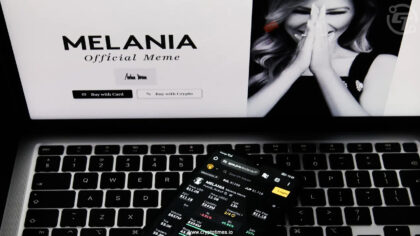Crypto compliance company Bitrace reported on April 29 that $649 billion worth of stablecoins moved through blockchain addresses labeled as high-risk during 2024.
These are wallet addresses believed to be used by illegal groups or individuals to store, send, or receive digital money.
In the report, Bitrace calls these addresses “high-risk” because they’re often involved in shady or illegal deals. This could include scams, theft, money laundering, or other hidden uses. The company uses special tools to check how risky a wallet might be and gives it a score. The higher the score, the more likely the wallet is up to no good.
The amount makes up 5.14% of all stablecoin transfers in 2024. That number is lower than the 5.94% seen in 2023, but still higher than earlier years. In 2022, the number was 2.8%, and in 2021 it was just 1.63%.

Most of the high-risk transactions happened with Tether’s USDT on the Tron blockchain. According to Bitrace, more than 70% of the high-risk volume came from this network. Ethereum-based USDT came next, followed by a smaller portion involving USDC.
“A likely explanation for the prevalence of USDT is likely due to its larger market capitalization and adoption compared with other stablecoins,” the report stated.
Even though Ethereum has more stablecoins in general, Tron holds more USDT specifically. At the time of the report, Tron had 47.4% of the total USDT supply, while Ethereum had 45.44%, according to data from Defillama. Tron’s dominance in this area was unexpected because Ethereum is still the more widely used platform for most crypto users.
Bitrace also revealed that crypto gambling is booming. In 2024, online gambling sites handled $217.8 billion in stablecoins. That’s a 17.5% jump from the year before. Again, USDT was used the most, but USDC gained ground, with a 13.36% share.

The report’s findings match other recent reports. For example, the FBI said Americans lost $9.3 billion to crypto fraud in 2024. Crypto casinos also made over $81 billion in revenue last year, even though some countries tried to block access.
Also Read: UK introduced Draft Laws to Govern Crypto Exchanges











